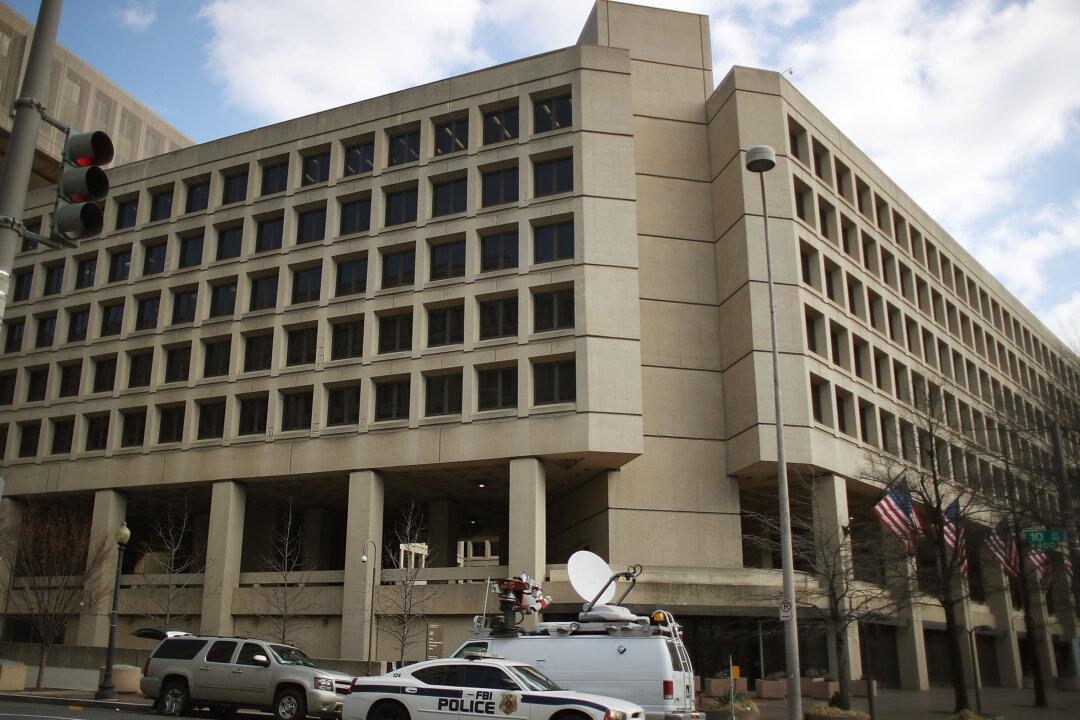Five years ago, on July 8, 2015, the FBI granted an emergency, yearlong, no-bid contract to the cybersecurity firm CrowdStrike.
Beyond its price tag of $150,000, little else is known about the CrowdStrike contract, although it followed two days after the intelligence community inspector general sent the bureau a referral to investigate whether then-presidential candidate Hillary Clinton used an unauthorized private email server to send classified information during her time as secretary of state.





